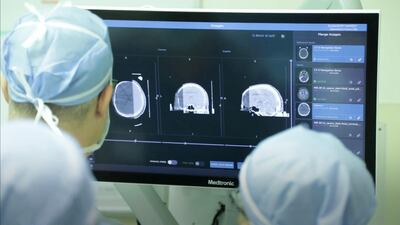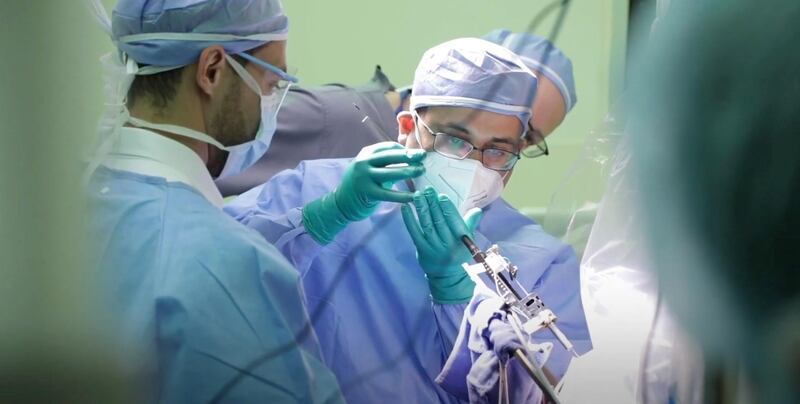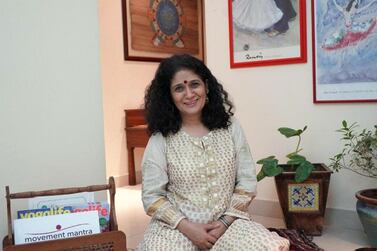Doctors in the UAE have performed complex new surgery on four Emirati Parkinson's disease patients.
They underwent the UAE's first deep brain stimulation operations and are now looking forward to regaining control over their movements again, said surgeons.
Neurosurgeons implanted electrodes into precise areas of the brain to block rogue signals that cause motor problems, such as the tremors, most commonly associated with Parkinson’s disease.
Each operation lasted between four and eight hours and took place over four days.
The technique involves electrodes controlled by a small device being implanted.
These areas are identified in advance using advanced imaging technologies that inform each patient’s unique surgical plan.
"Deep brain stimulation is an intricate procedure that will transform both the lives of patients and the way Parkinson's disease is treated in the UAE," Dr Florian Roser, chair of the Neurological Institute at Cleveland Clinic Abu Dhabi said.
“The level of expertise required to offer this surgery is phenomenal and I am extremely proud of the whole team for coming together to offer these patients a new level of care and a life less reliant on medication and with fewer symptoms.”
The surgery’s benefits include significantly reducing the symptoms of Parkinson’s disease, which in turn reduces the need for medication and improves quality of life.
Neurosurgeon Dr Tanmoy Maiti performed the surgery at Cleveland Clinic Abu Dhabi.
“Deep brain stimulation is a particularly complex endeavour that relies on detailed planning and sub-millimetre precision. Using some of the worlds most advanced imaging techniques, our team is able to determine the exact areas of the brain causing a patient’s symptoms,” he said.
"Once identified, the challenge is to place the electrode at those precise points through the brain. Each case is unique and dramatically different to most surgeries.”
The surgical team received support from Dr Andre Machado, chair of the neurological institute, who flew to Abu Dhabi from the US for the operations.
“Our team trained the surgical team at Cleveland Clinic Abu Dhabi and also discussed each patient’s surgical candidacy. It was a great pleasure to be in Abu Dhabi to support the success of the first few surgeries and the Cleveland team will continue to support this very important programme,” Dr Machado said.
A growing number of people around the world are being diagnosed with Parkinson's disease earlier than the usual. Normally those with the condition receive the diagnosis in their sixties or older, however, the four Emirati patients were younger than average.

Mohammed Al Aryani, 49, received the diagnosis of Parkinson's disease in 2003 at the age of 32. As his symptoms worsened, he shied away from social contact due to the shame he associated with them.
“I left my job, stopped my studies and even stopped leaving home for a long time. I wasn’t able to see my own children because I didn’t want them to see me like this,” he said.
“After my surgery, I would like to continue my studies and get my bachelor’s degree, to be able to enhance and move ahead with my career. Most importantly, I cannot wait to be close to my children again and live a normal life.”
Rashed Al Hebsi was diagnosed with Parkinson's in 2015.
"I could not move properly or go to work normally. My mental health deteriorated, and I could not socialise any more," Mr Al Hebsi said ahead of his surgery.
“When my doctors told me about deep brain stimulation, I went online and did my research about the procedure, watched videos and read a lot. I am proud of the UAE leadership and proud to be an Emirati.
“We have the best healthcare technology and skills. I look forward to becoming more active and socialising again.”








